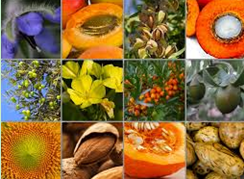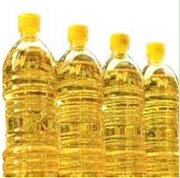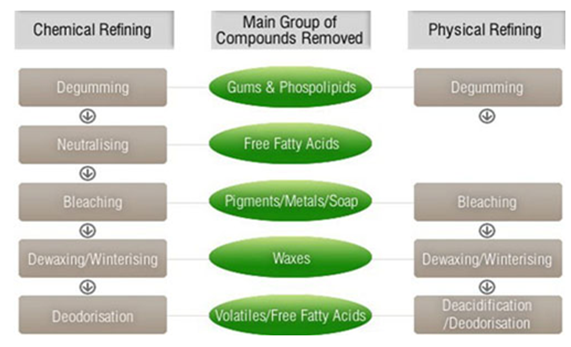Processing can remove the components of edible oils which may have negative effects on taste, stability, appearance or nutritional value. To the extent possible, processing should preserve tocopherols and prevent chemical changes in the triacyglycerols.
Vegetable Oil
The vegetable oil processing industry involves the extraction and processing of oils and fats from vegetable sources.


Vegetable oils are also called salad oils, because many of them can be used to dress salads. Vegetable oils and fats are principally used for human consumption but are also used in animal feed, for medicinal purposes, and for certain technical applications. The oils and fats are extracted from a variety of fruits, seeds, and nuts, such as: cotton seeds, sesames, peanuts, corn, soybean, sunflower seeds, rapeseeds, and pumpkin seeds, etc.
Vegetable Oil Processing
Generally speaking, the production of vegetable oil includes the following steps:
1. The preparation of raw materials includes husking, cleaning, crushing, and conditioning.
2. The extraction processes are generally mechanical (boiling for fruits, pressing for seeds and nuts) or involve the use of solvent such as hexane. After boiling, the liquid oil is skimmed; after pressing, the oil is filtered; and after solvent extraction, the crude oil is separated and the solvent is evaporated and recovered. Residues are conditioned (for example, dried) and are reprocessed to yield by-products such as animal feed. Crude oil refining includes degumming, neutralization, bleaching, deodorization, and further refining.
3. Next is the oil refining process, which usually includes: degumming, neutralizing, bleaching and deodorizing.

As a professional Chinese manufacturer and supplier, our vegetable oil processing machines have been exported to many countries around the world. Moreover, our customers are quite satisfied with them. And we are sure that you will be satisfied with our products, too!

